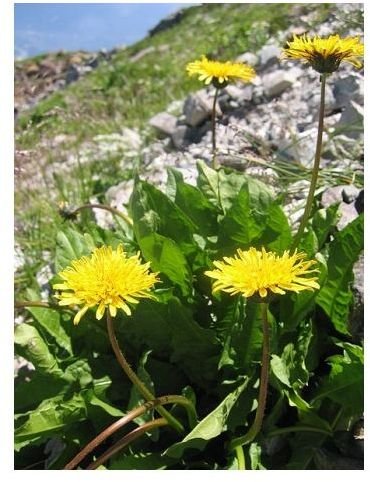Learn about Diuretic Herbal Teas
Diuretics
Diuretics (also known as water pills) are often prescribed to treat hypertension (high blood pressure). Synthetic diuretics (drugs) have the potential of causing hypokalemia (potassium deficiency). Low potassium levels affect the heart and can be fatal if severe. Other side effects and complications include headache, fatigue, vertigo, orthostatic hypotension, chest pain, diarrhea, vomiting, blurred vision, loss of hearing, and renal failure.
Diuretic herbal teas are a safer alternative and may be an effective treatment for your medical condition. However, it is important that you speak to your health care provider before taking. If your doctor is not familiar with these herbs, I suggest you talk to a doctor of Naturopathic Medicine.
Natural Diuretics
Not only do the following herbal teas help eliminate excess fluid, they also offer many other benefits.
Dandelion
Dandelion leaves promote the excretion of water and salts from the kidneys, thus increasing urine production. Dandelion is packed with nutrients and antioxidants, including vitamins A, C, and E, calcium, iron, zinc, magnesium, and potassium (which replaces lost potassium in the urine). Drinking dandelion tea also helps boost the immune system, improve liver function, increase blood flow, decrease inflammation, and reduce “bad” cholesterol.
To prepare a cup of this herbal tea, pour 1 cup of boiling water over 1-2 teaspoons of dried leaves, cover, steep for 5-10 minutes, and strain. Drink up to 3 cups a day.
Dandelion is generally considered a safe herb. Some people have experienced an increase in stomach acid and heartburn. If you are allergic to ragweed, chamomile, marigold, chrysanthemums, daisies, yarrow, or iodine, you should avoid taking dandelion. If you have gallbladder problems and gallstones, you should talk with your doctor before taking.
Nettle
Nettle tea, also high in potassium, has been used as a natural diuretic for many years. Numerous studies with positive results have been performed in Germany, where it is often prescribed as a diuretic. Nettle has been used to treat a variety of urinary tract, bladder, and kidney conditions, including urinary tract infections and kidney stones.
To prepare a cup of tea, pour 1 cup of boiling water over 1 tablespoon of dried leaves, cover, steep for 15-20 minutes, and strain. Drink up to 4 cups a day.
Nettle tea is considered a safe herb with rare side effects. Gastric irritation is possible. It does contain high amounts of vitamin K so people taking blood thinners should avoid taking. If allergic to ragweed, do not take.
Other
Other diuretic herbal teas include fennel, linden, yarrow, and hops.
Sources Used
University of Maryland Medical Center: Dandelion - https://www.umm.edu/altmed/articles/dandelion-000236.htm
Nettle-Tea.net: Nettle Tea is a Natural Diuretic - https://nettle-tea.net/2009/10/nettle-tea-is-a-natural-diuretic/
Photo Credit
Image courtesy of https://commons.wikimedia.org/wiki/File:Siroumatanpopo.JPG
Disclaimer
Please read this disclaimer regarding the information contained within this article.
